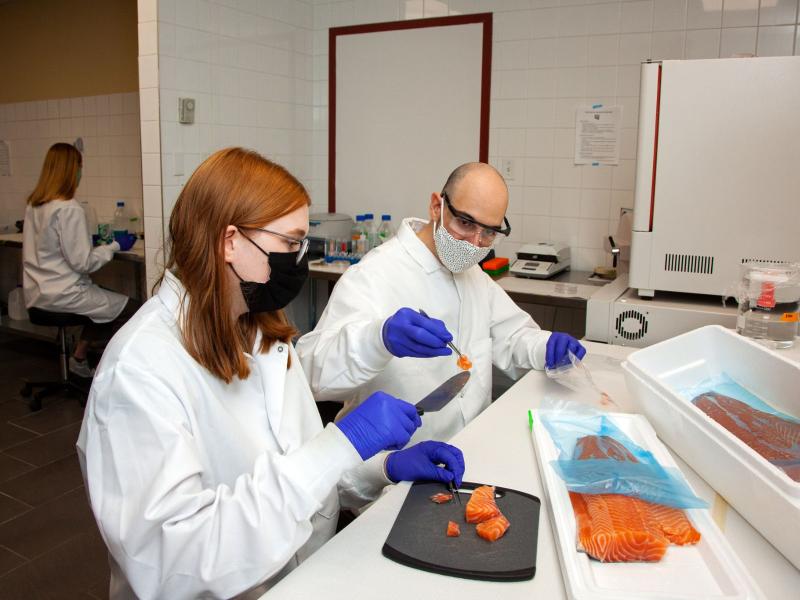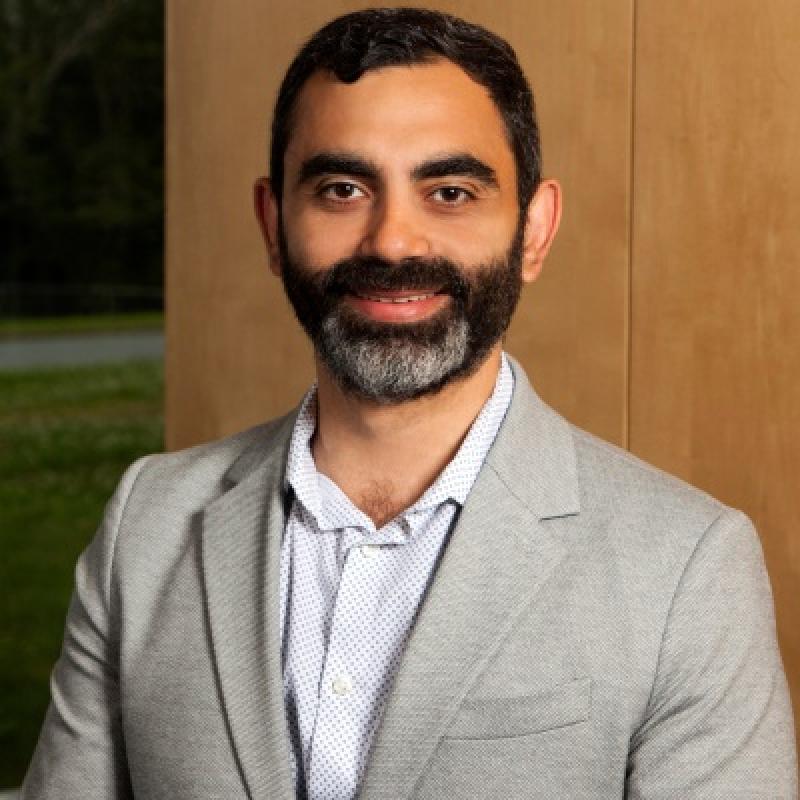
A food film coating developed by Dartmouth, N.S.-based Freshr Sustainable Technologies Inc. extends the shelf life of fish, which the company says will improve business margins and decrease the greenhouse gas emissions from wasted food.
Made with naturally derived ingredients, the coating named FreshrPack is applied to the surface of packaging film that comes in contact with animal protein. The antimicrobial properties extend the 14-day shelf life of salmon by two to four days.
“The main value proposition is we sell time in the fresh protein sector,” Freshr CEO Mina Mekhail said in an interview with Sustainable Biz Canada. “Time means a lot of money.”
By buying more time for fish to remain on grocery shelves, less food will be discarded, which translates into fewer greenhouse gas emissions.
When left to rot, food breaks down into carbon dioxide (CO2) and methane. Discarded food accounts for eight to 10 per cent of the world’s climate-warming pollution, according to the United Nations. Charity group Second Harvest estimates almost half of the food in Canada ends up in the trash, contributing almost 26 million tonnes of CO2 emissions per year.
Freshr's process to help alleviate this problem led to the company being named one of the Canadian Food Innovation Network’s Rising Stars. The recognition goes to early-stage businesses developing solutions for major challenges in the food industry.
From a spray to a coating
Founded in 2017 by Mekhail, who is a bioengineer, Freshr started with an idea to spray fruits and vegetables with a coating to lengthen shelf life. But the company recognized the economics were not feasible for such a low-value commodity. Also, Freshr discovered consumers were not fond of food sprays on produce.
Freshr changed tracks to developing antimicrobial packaging for animal protein, starting with premium, highly perishable products like seafood. When food film coated in FreshrPack comes in contact with fish, it significantly hampers the growth of bacteria that lead to spoilage.
“We actually just want to extend it just enough to capture value from it, and not too much to start making the consumer doubt the freshness of the product,” Mekhail explained.
The extended shelf life means fish processors can ship their fillets farther away to reach more markets, Mekhail said. Retailers will have more product to sell and can reject fewer shipments. Fish processors will make fewer claims, which will lower their insurance premiums.
Testing by third-party organization Boundless Impact compared FreshrPack-enhanced film to traditional packaging. The test found FreshrPack offsets between 1.1 and 1.6 kilograms of CO2 equivalent per square metre by reducing food waste.
To further boost Freshr’s sustainability, Mekhail said the company is focused on applying its coating on compostable food film so the entire plastic product is compostable.
Regulatory approval key to Freshr’s commercialization

From its facility in Dartmouth, Freshr manufactures the coating and applies it on rolls of film which are sent to fish packagers. The company’s current production capacity is approximately 150,000 square metres of FreshrPack-coated film per year. Next year, Freshr is looking to design a production line that can churn out one million square metres per year.
The company’s business strategy is to partner with food film extruders to integrate its coating on their production lines. Products Freshr has developed to date include skin and vacuum packaging, vacuum bags and liner for fish fillets.
Freshr has secured Mitsubishi Chemical Group as a partner. The Japanese company plans to build a film extrusion line that uses FreshrPack on license to service the Southeast Asian seafood market.
Freshr’s technology has attracted the attention of businesses in the Americas, Asia and Europe, Mekhail said. But to meet this international interest, the company must first meet health regulations.
The company’s target is to obtain approval from the U.S. Food and Drug Administration (FDA). The agency’s green light is the “gold standard” for the markets Freshr has its eyes on, Mekhail said. Freshr is also working through the regulatory process with Health Canada.
Mekhail hopes FreshrPack will have FDA approval by September 2026. “Once we get the FDA approval, we can start selling,” he said. Mehkail expects Freshr can start selling its coating in Q3 2026.
Freshr has raised millions of dollars in funding to date, and has received more funds from the Canadian Food Innovation Network. Mekhail hailed the accolade from the organization as a “great honour.”
Because Freshr closed an oversubscribed seed round in February, Mekhail does not expect any new funding round to be announced for a few years.
He said to expect more partnership announcements in the near future.










